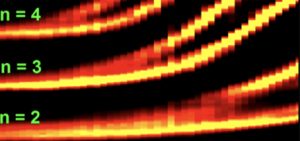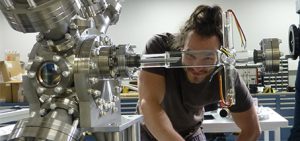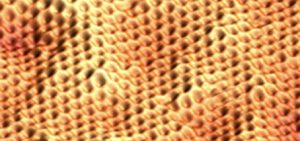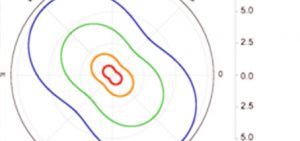FLEET News
Spin-orbit interaction (SOI), is the interplay between electrons’ inherent angular momentum (their quantum spin) and their orbit around an atom’s nucleus. This interaction is key to the function of topological materials, which are studied at FLEET for their potential to form ultra-low resistance pathways for electrical current. A recent study investigated the relationship between spin-orbit interactions in gallium arsenide quantum …
A barrier to practical spintronic devices has been lowered as room-temperature ferromagnetic semiconductors created in an international collaboration involving FLEET’s Xiaolin Wang. While semiconductor spintronics promise lower switching energy and faster speed, a major limitation on its development as a viable technology is the lack of room temperature ferromagnetic semiconductor materials. A collaborative study between researchers from two Chinese universities …
The National Science Quiz will be held in Melbourne on Sunday 18 June at 3pm. FLEET Director, Professor Michael Fuhrer, will be one of the scientists on the panel for this event. With live demonstrations and curiosity-provoking questions, the National Science Quiz is ninety minutes of science, maths, and laughs that promises fun for the whole family. #NatSciQuiz2017 Secure your …
FLEET staff will be visiting a primary school next week to talk to Grade 2 students about energy, electricity and technology. With the use of a van de Graaff generator, it’ll be a hair-raising experience! FLEET has a commitment to bringing science and research to the wider community. FLEET staff are currently developing a range of resources that can be …
A next-generation Bose-Einstein condensate apparatus being built at Monash University will allow bigger Bose-Einstein condensates to be created, and allow even higher resolution imaging of them. Researchers will also have better optical access to be able to manipulate the atoms within the condensate more precisely. The equipment will allow researchers to study non-equilibrium dynamics and quantum turbulence. FLEET Chief Investigator …
The future of ultra-low resistance semiconductor junctions in novel low-energy electronics is looking good after a recent study took a very close look at band alignment. FLEET is using two-dimensional materials in the search for new electronics devices that will carry electrical current without losing the significant energy dissipated in current, silicon technology. The new electronic devices developed at FLEET …
A study by FLEET’s UNSW researchers looked at spin-orbit interaction at the two-dimensional interface between common semiconductor materials. A new semi-analytical method was developed for analysis. Spin-orbit interaction (SOI), is the interplay between electrons’ inherent angular momentum (their quantum spin) and their orbit around an atom’s nucleus. This interaction is key to the function of topological materials, which are studied …







